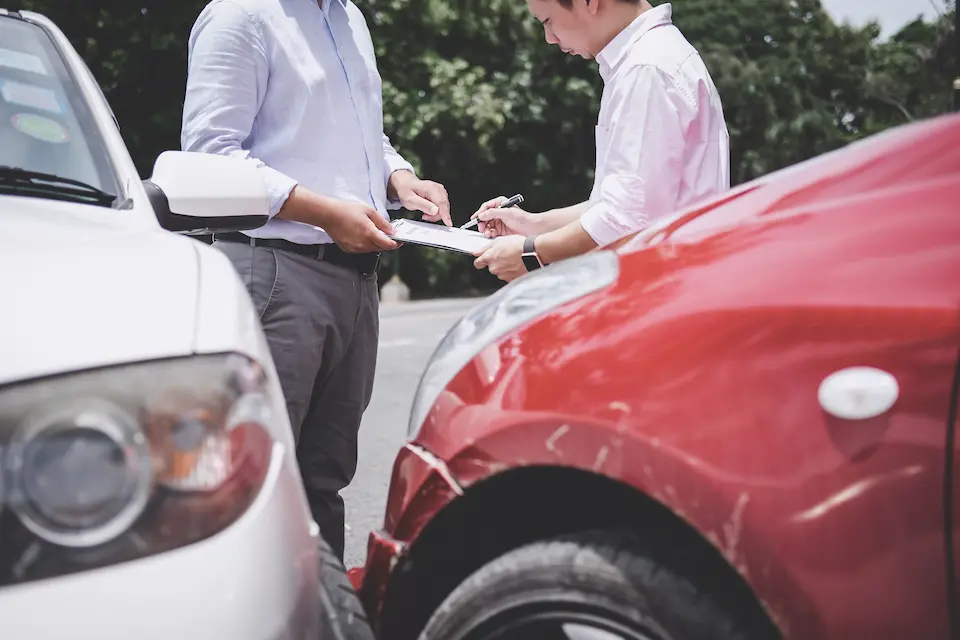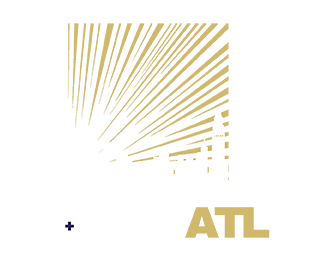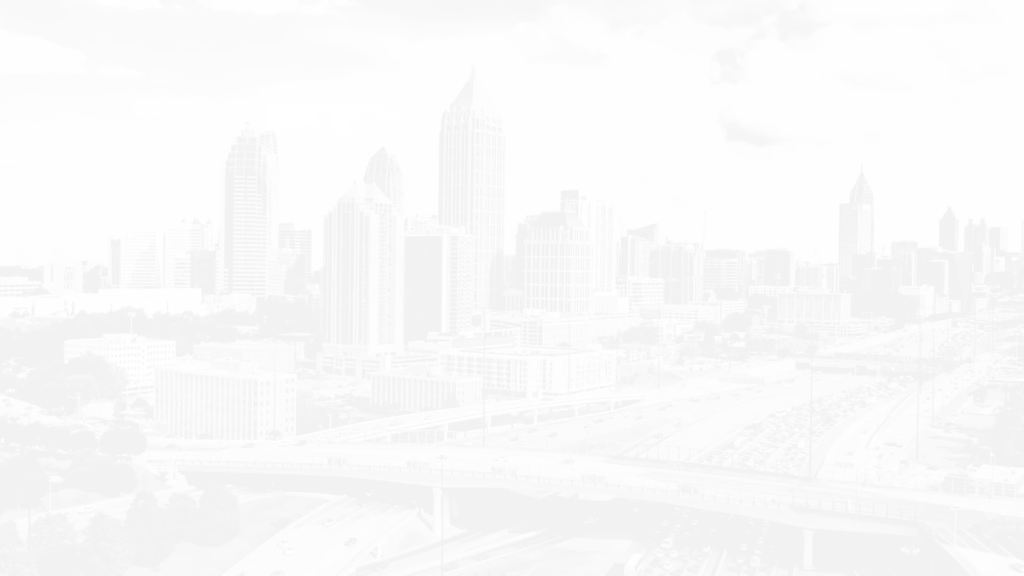Were you in a car accident in the State of Georgia and need to obtain…
Just about all drivers will be involved in an automobile accident sooner or later. Unfortunately, if they crash while driving without insurance, referred to as a no-car insurance accident, the consequences can be serious. This situation is alarmingly common, with a 2021 study by the Insurance Research Council (IRC) revealing that 12.6 percent of motorists, or about one in eight drivers, were uninsured.

Nathan Fitzpatrick is a skilled car accident lawyer who has recovered millions of dollars in settlements and verdicts for his clients. In this article, Attorney Fitzpatrick will discuss what could happen to you if you get behind the wheel without insurance and are involved in an accident.
Understanding the Risks of a Car Accident Without Insurance
Drivers who do not carry liability insurance take risks every time they get behind the wheel. Liability insurance compensates road users who suffer injury, loss, or damage in accidents caused by the policyholder. If you drive without insurance, you would be responsible for compensating accident victims if you were at fault.
The Legal Consequences of Driving Without Insurance
Driving without liability coverage can have legal as well as financial consequences. An uninsured driver who crashes will pay fines and lose their driving privileges. Even worse, repeat offenders can be sent to jail. If you are cited for driving without insurance coverage, your vehicle will likely be impounded and your registration suspended, even if the other driver was at fault.
Financial Implications: Costs You Might Face
Georgia is an at-fault state, which means drivers who cause accidents must pay compensation to any road users who are injured. Auto insurance coverage usually pays these costs, but motorists who drive without insurance must foot the bills themselves. If they refuse to pay, they can be sued. This means that uninsured drivers who cause accidents may have to pay legal fees and court costs, as well as car repair and replacement costs and medical bills.
Immediate Steps to Take Following a No Insurance Car Accident
The steps you take in the moments after a car accident can profoundly influence the consequences you will face. If the accident is deemed to be your fault, you will be expected to pay compensation to road users who suffered injuries. If the other driver is determined to be at fault, you can recover compensation from them or their car insurance company.
Assessing the Scene: Safety First
Under Georgia state law (O.C.G.A. 40-6-273), you are required to call 911 to report a car accident under specific conditions:
- If someone is injured.
- If there is a fatality.
- If property damage exceeds $500.
This law mandates immediate action if you're involved in a car crash that results in injuries, death, or significant property damage. You must quickly communicate the incident, contacting the local police department if the accident occurs within a municipality. For accidents outside municipal boundaries, the report should be directed to the county sheriff's office or the closest state patrol station.
How to Aid the Injured at the Scene
At the accident scene, it's important to assess for injuries and urgently need medical assistance, informing the 911 dispatcher about any injuries. It's advisable not to move those with severe injuries unless it's necessary to prevent further harm. Examples include moving them away from immediate dangers like exposed electrical wires. This approach is not only about fulfilling a legal obligation but also about ensuring the safety and health of everyone involved.
Documentation: Gathering Essential Information
Insurance claims and lawsuits filed after a car accident are resolved based on evidence, so gathering as much useful information as possible at the scene of a crash is very important. Use your cellphone to take photographs of the vehicles involved before they are moved or towed away. Also, gather the names and contact details of any bystanders who saw the events unfold. Photographs are especially important because they can be used to establish the road and weather conditions and identify the locations of nearby security cameras.
Navigating Georgia's Car Insurance Laws in Accident Scenarios
Insurance coverage is required in Georgia and all other states to ensure that people who are injured in motor vehicle accidents receive fair compensation. If you are involved in an accident, one of the first things the responding police officers will do is ask to see your vehicle registration and proof of insurance. If you cannot provide proof of insurance, you will probably get a ticket.
State Regulations: What Georgia Law Says
Every vehicle owner in Georgia must purchase a car insurance policy that provides minimum levels of liability insurance if they wish to use public roads. The liability coverage amounts required by Georgia law are:
- $25,000 in bodily injury coverage per person
- $25,000 in bodily injury coverage per accident
- $50,000 in property damage coverage per accident
Uninsured and Underinsured Motorist Coverage
Beyond the basic liability insurance, vehicle owners have the option to enhance their protection through various additional coverages. Among these options, uninsured motorist coverage stands out as a safeguard. This coverage is particularly important as it protects against damages caused by any other driver who lacks adequate insurance.
It not only ensures that you are covered if an uninsured driver hits you but also reinforces the importance of carrying insurance yourself to avoid being an uninsured motorist in the eyes of others. Including uninsured motorist coverage in your policy ensures you have comprehensive protection, covering gaps that might exist due to the failure of the other driver to carry sufficient insurance.
Penalties for Driving Without Insurance in Georgia
Driving without auto insurance in Georgia can have serious consequences. For example, uninsured drivers must pay a $25 insurance lapse fee and a $60 reinstatement fee to restore their vehicle registrations and driving privileges. The reinstatement fee increases to $160 for third and subsequent offenses.
Driver’s licenses and vehicle registrations are suspended for 60 days for a first offense, 90 days for a second offense, and six months for third and subsequent offenses. The custodial sentence for driving without insurance in Georgia is up to one year in jail, and even first-time offenders can spend time behind bars.
Dealing with Injuries in a No Insurance Scenario
If you are injured in a no-car insurance accident in Georgia, you can file a claim with the at-fault driver’s insurance company if you are not to blame. If you were at fault, you would have to cover your medical expenses yourself. This could amount to little more than copays and deductibles if you have health insurance, but it could be ruinously expensive if you have no health coverage and your injuries are serious. This is one of the reasons why you should make sure that fault is determined properly.
Seeking Medical Attention: A Priority
You should always visit an emergency room to seek medical treatment after a car accident, even if you have no health insurance and feel fine. This is because common injuries from a car accident, like internal bleeding, concussions, spinal cord trauma, and soft tissue damage, do not always present symptoms right away. If these injuries are left undiagnosed and untreated, they can get worse and may even become life-threatening.
Handling Medical Bills Without Coverage
Many uninsured drivers in Georgia fall into what is known as the “coverage gap.” This means that they make too much money to qualify for Medicaid but do not earn enough to pay for private health insurance.
Emergency rooms are legally obligated to treat people even if they have no insurance, but that does not mean they don’t send them a bill. If you find yourself in this situation and suffer injuries in a car accident that you caused, you may still be able to find affordable care.
You could visit a:
- Community health center that offers primary care to underserved communities
- Charitable care clinic operated by a nonprofit organization
- Federally Qualified Health Center that receives government funds
The Role of Police in Accidents Without Insurance
Georgia’s at-fault insurance law requires police officers to apportion blame at accident scenes. Their conclusions are not binding, but they carry a great deal of weight. If a police officer determines that you caused a car accident, you will have an uphill battle ahead of you if you hope to receive compensation or recover damages.
Reporting the Accident: Legal Requirements
Some who are involved in an accident as an uninsured driver may feel compelled to flee the scene. Of course, that would be a huge mistake. Fleeing the scene would make you look guilty, and it could lead to a jail sentence.
Leaving an accident scene is usually charged as a misdemeanor in Georgia, but you could face a felony charge if you flee the scene of an accident that caused serious injury or death. If you are found guilty of this offense, you could be fined up to $1,000 and sent to jail for up to five years. You will also lose your driving privileges.
How Police Reports Influence No Insurance Cases
Police officers who are dispatched to car accident scenes in Georgia must complete and submit official reports. Juries and insurance companies tend to rely heavily on their observations and conclusions, so you should think carefully before answering any questions after an accident. This is especially true if you are an uninsured driver.
Financial Recovery Options After an Accident Without Coverage
Your ability to seek financial compensation for injuries or property damage resulting from a car accident depends on the question of fault. Should the other driver be responsible, you have the option to either pursue legal action against them or make a claim through their insurer. That being said, if you're found at fault, you may find yourself on the receiving end of a lawsuit.
In scenarios where the other driver possesses uninsured or underinsured motorist coverage, they're more likely to claim compensation through their insurance, bypassing the need to sue you. This type of coverage is designed to protect policyholders in incidents involving drivers who lack insurance or sufficient coverage to cover the costs of damages and injuries.
Exploring Out-of-Pocket Expenses
Drivers who are involved in motor vehicle accidents have numerous out-of-pocket expenses, regardless of their auto insurance coverage. Common out-of-pocket expenses include:
- Insurance company deductibles
- Health insurance copays and deductibles
- Prescription drug costs
- Car rental bills
- Towing fees
- Rideshare, taxi, or public transportation fares
Seeking Legal Advice for Compensation
If you find yourself involved in a vehicular accident as an uninsured driver, whether you're at fault or a victim, the situation carries significant legal and financial implications. For at-fault drivers without insurance, navigating the aftermath can be particularly challenging.
A skilled car accident lawyer can represent you in negotiations with auto insurance companies and in court, providing clarity on your legal options and where you stand. Most auto accident attorneys offer free consultations, so understanding your legal position doesn't have to come at an initial cost.
Alternatively, if you're a victim of an accident caused by an uninsured driver, it's essential to be aware of your rights and the possible paths to seek compensation for your injuries and damages. An experienced personal injury lawyer can guide you through the complexities of the law and help you explore all available avenues for compensation.
Given the serious consequences of being uninsured in an accident, consulting with a personal injury lawyer who is well-versed in car accident laws and procedures is a wise decision. For those in such a predicament, a complimentary legal consultation can be invaluable.
For a free legal consultation with Nathan Fitzpatrick at The Fitzpatrick Law Firm, please call (678) 607-5550. This step can ensure you're fully informed and supported, regardless of your role in the accident.
Impact on Future Insurance Rates Post-Accident
Some insurance companies offer their policyholders accident forgiveness, but premiums usually increase sharply after an accident. The financial consequences of crashing are even more severe when uninsured drivers are at fault.
If you are an at-fault driver and crash without insurance coverage, you will have to complete and submit a Georgia Safety Responsibility Insurance Certificate, which is also called an SR-22A form, to restore your driver’s license and vehicle registration. SR-22 insurance is expensive in Georgia because insurance companies view uninsured motorists as major risks.
Understanding How Accidents Affect Premiums
Unfortunately, premiums can increase by up to 60% if you are involved in an at-fault accident. This increase can vary depending on several factors, such as the insurer, the driver's history, and other factors. Motorists pay less if they only carry liability insurance, but their rates still increase sharply when they cause accidents. When auto insurance premiums rise after an accident, they usually remain elevated for between three and five years.
Tips for Negotiating Better Rates After an Incident
Companies like Allstate, State Farm, and Progressive use complex formulas to calculate premiums for insurance coverage, so negotiating with your agent will not save you any money. However, there are steps you can take that could lower your premiums.
You should shop around before signing anything because not all insurance companies treat accidents in the same way. If you were ticketed after a crash, you could remove up to six points from your driver’s license by attending a 6-hour defensive driving course offered by the Georgia Department of Driver Services.
Preventing Future Accidents and Ensuring Proper Coverage
The best way to avoid the legal and financial consequences of being involved in a car accident is not crashing in the first place. That is not always possible, so it is important to carry at least the legally mandated amount of auto insurance.
Importance of Adequate Motor Vehicle Insurance
Maintaining adequate auto insurance in Georgia is important because it is a legal requirement and could save you thousands of dollars if you are involved in an accident. The minimum levels of bodily injury liability and accident property damage liability coverage required in Georgia will not compensate you for your injury, loss, or damage, but they may prevent you from being sued.
More than 12% of the motorists in Georgia drive without insurance, so it may be a good idea to pay a little extra for uninsured motorist and underinsured motorist coverage.
Strategies to Avoid Future Accidents
Almost all accidents are caused by some human error, but you could reduce your chances of being involved in one by:
- Remaining vigilant at all times
- Obeying traffic laws
- Properly maintaining your car
- Taking public transportation or a taxi when road conditions are poor
- Not using a cell phone behind the wheel
FAQs: Common Questions About Accidents and No Insurance
What Happens Legally If I'm in a Car Accident Without Insurance?
You will be cited for driving without insurance and could be sued. Georgia requires all vehicle owners to carry minimum levels of bodily injury liability coverage, and people who violate the law can spend up to a year in jail. That is why you should contact an auto accident attorney early if you are involved in a no-insurance accident. Additionally, not having your insurance means you could face significant financial burdens for damages and injuries from the accident.
Can I Be Sued for Damages in a No Insurance Accident?
You can be sued if you are involved in an uninsured motorist accident, but you probably won’t be unless you earn a lot of money or have significant assets. This cautious approach is because personal injury attorneys are reluctant to sue individuals who do not have the means to pay damages. However, you should bear in mind that the Georgia statute of limitations gives accident victims up to two years to take legal action. That means that you could be sued in the future if your situation changes.


